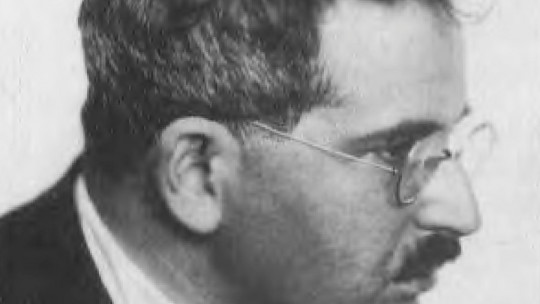Christian Wolff (1679-1754) was a German rationalist philosopher and mathematician which stood out in the historical context of the Enlightenment, a cultural and intellectual movement, especially active in Germany, France and England.
This movement supported knowledge and its dissemination as essential tools to create a better world in every sense.
In this article you will find a biography of Christian Wolff ; We will talk about his origins, his studies, his career… without forgetting his thoughts, his philosophy, his works and his great contributions to the field of knowledge.
Christian Wolff Biography
Christian Wolff (1679-1754), full name Christian Freiherr von Wolff, was a German philosopher who was born in Breslau (Silesia, Poland), on January 24, 1679, and who died in Halle on April 9, 1754, the age of 75 years.
This intellectual belonging to the Enlightenment can be defined as an idealist, systematizer and popularizer of the philosophy of the philosopher Leibniz ; In fact, much of his work focused on disseminating and interpreting the philosophy of that thinker. He also worked as a teacher and went to different universities.
On the other hand, Wolff influenced, years later and in a notable way, the rationalist ideas of the famous philosopher Immanuel Kant.
Christian Wolff’s ideological current was rationalist, according to which knowledge can be achieved through reason as an activity detached from the material reality that surrounds us, and his ideas were influenced, in turn, by the philosopher and mathematician René Descartes. . On the other hand, His scientific method ended up being nourished, in large part, by mathematics since in addition to being a philosopher Wolff was also a mathematician.
Origin and studies
Christian Wolff was the son of a craftsman. He studied Lutheran theology (a branch of Christianity) and philosophy in the Polish city of Breslau , your natal city. Later, in 1699, Wolff began to pursue other types of studies (physics and mathematics), this time in a German city: Jena.
Three years later, in 1702, he moved to Leipzig to obtain a doctorate, a year later, in philosophy. His doctoral thesis was Philosophia practica universalis mathematica methodo conscripta.
Besides, He obtained the professorship of mathematics at the University of Halle , a few years later (in 1706), largely thanks to the recommendations of his companion Gottfried Leibniz, German philosopher and mathematician. At said university he worked as a professor of mathematics and natural philosophy.
Controversy: the clash of his ideas with religion
Christian Wolff generated controversy with his thinking; specifically, one of his works, Oratio from Sinarum philosophica practica (1721), which dealt with the philosophy of the Chinese, sparked controversy. Following this work, many classmates, professors of Theology, accused him of being an atheist and for this reason he was dismissed two years after the publication of the aforementioned work.
However, it is not true that he was an atheist, and Christian Wolff denied it with another of his works: Theologia Naturaliswhere he exposes the importance of God as a perfect and real being.
Intellectual career
Life moved on, and as a result of what happened, Christian Wolff was banished from Prussia. His works were also banned in 1723 Luckily, Wolff was taken in by the Landgrave Hesse-Kassel.
He began teaching at the University of Marburg, until 1740. That same year, Frederick II of Prussia (also called Frederick II the Great), third king of Prussia, called him, and thereupon he returned to Halle (German city). Four years later, at the University there, he was made chancellor, and two years later, he was granted the title of baron. Christian Wolff remained in Halle until his death.
Work and thought
Christian Wolff’s work is very extensive, and he published up to 67 titles, organized in 23 volumes, only between the years 1703 and 1753. His works were written in both German and Latin.
On the other hand, in order for us to understand Wolff’s thought and philosophy, his work focused on disseminating and interpreting Leibniz’s philosophy. They were Leibniz and Descartes, the two most relevant figures who influenced the thought of this philosopher.
Specifically, they inspired him to create his philosophical method, which had a mathematical orientation On the other hand, Christian Wolff’s thought was rationalist, which means that he considered reason as the main source of knowledge, although that does not mean that he was a believer.
One of his most relevant works was Logic: Rational thoughts about the forces of human understanding (1728), based on his idea about society, which followed the trend of enlightened despotism.
Beyond this book, these are some of his most relevant works:
Other contributions
Regarding his contributions, Wolff also developed a metaphysical teleologism (a branch of metaphysics that studies the purposes of objects or beings), through which he explained universal connection and harmony of being as ends established by God
Another of Christian Wolff’s contributions was to systematize and revive scholasticism, a medieval philosophical and theological current that uses part of classical philosophy to understand Christianity.
Furthermore, Wolff developed his own philosophical method, which was a deductive and rationalist method, through which he maintained that all the truths of philosophy were reduced to the laws of formal logic
Finally, we must not forget the great dissemination that Wolff carried out of sciences that were more “remote” from philosophy, such as: mathematics, physics, chemistry, botany…









